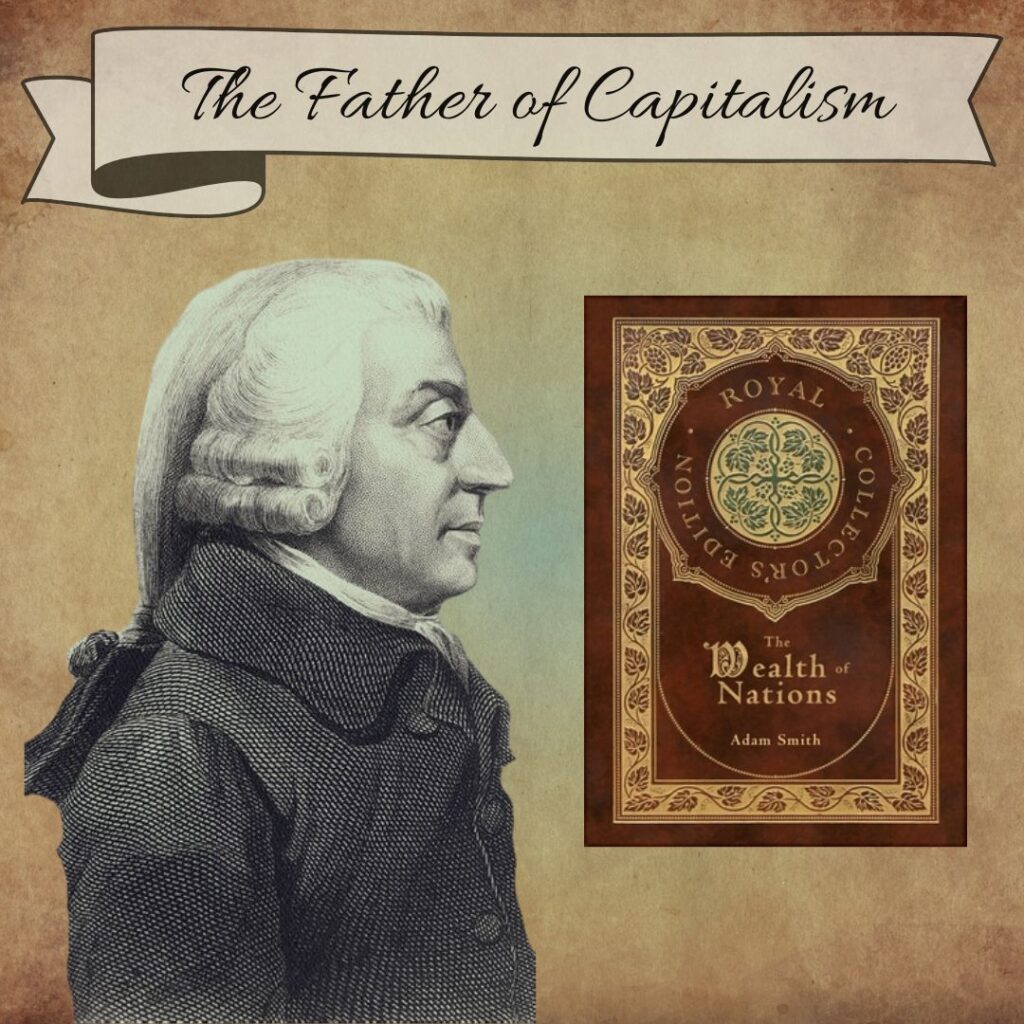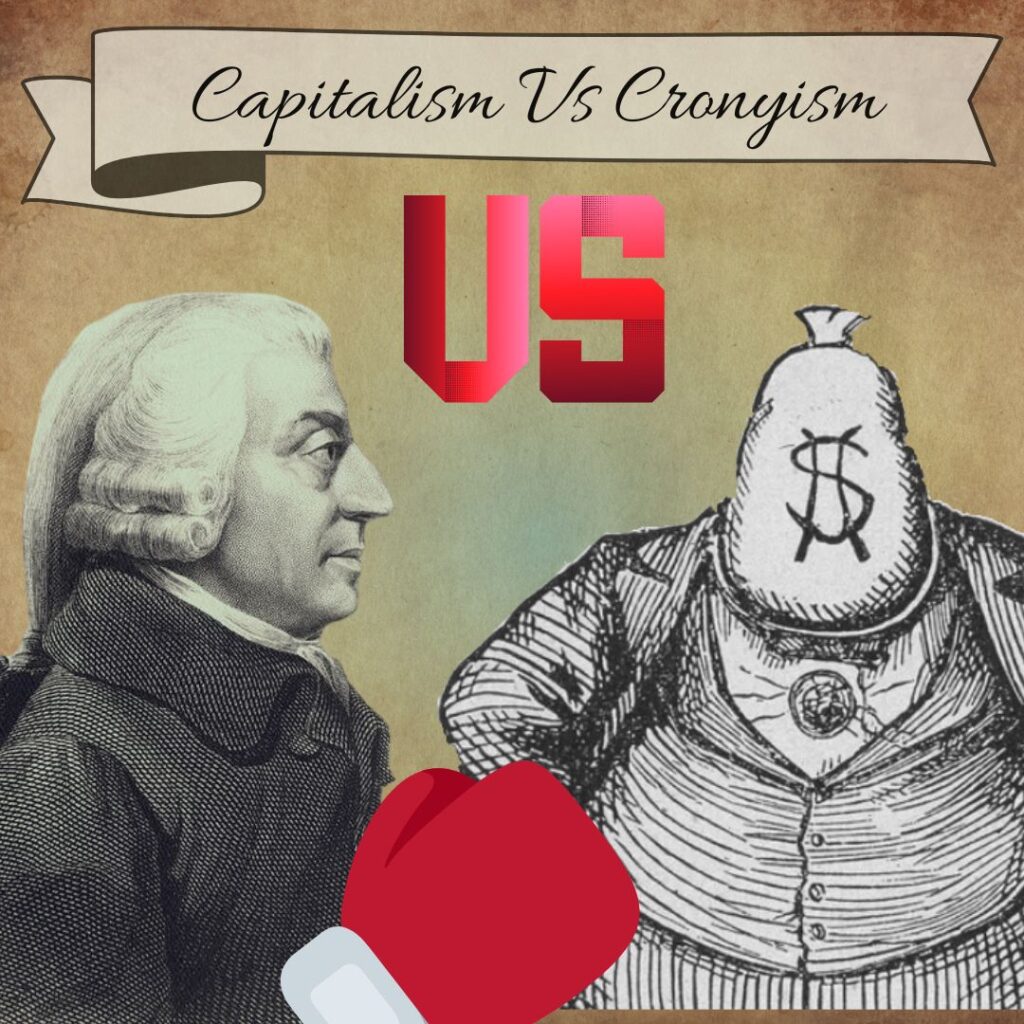How did the U.S. become an economic powerhouse?
After the revolutionary war, the United States quickly became an economic and agricultural powerhouse thanks to its freedom inspired economic system. That system, in case you are unfamiliar is Capitalism.
Capitalism has been under attack over the last several decades in our school systems, the media, and even by politicians as financial inequality worsens in the US. However, capitalism is not to blame for these issues. Despite what you were taught in school, the US has not operated on capitalism in the better part of a century. In order to understand the economic system of the United States we must look at Capitalism vs Cronyism.
Economic Systems
Capitalism
Capitalism, as defined by Investopedia is: “ An economic system characterized by private ownership in which the free market alone controls the production of goods and services.” The capitalist system was championed by economist Adam Smith in his book “Wealth of Nations” in which he described some of its characteristics.
Specialization
Specialization is the idea that countries should do what they are best at and trade freely with each other. Smith uses the example that “It doesn’t make sense to grow grapes in Scotland when they grow much better in France.” If individual nations have an advantage in producing a specific good, then they should focus on producing that good and trade with other nations for the goods that they do not have an advantage in producing. This will lead to the society at large having more overall goods.
Government
Adam Smith believed that the roll of government in a capitalist society was to ensure that property could not be taken by foreign powers and also to ensure property rights for all. A capitalist government should: avoid large debts, avoid taxing capital, and avoid arbitrary taxation.
Does that sound foreign to you? Well it should, our government does the exact opposite of that now. The U.S. primarily taxes capital, has complex tax codes, and is currently 32 trillion dollars in debt. However if you look at history, the United States economy was its strongest when the government had little debt, no income tax, and fewer laws in general.
Cronyism
Cronyism can be summarized as favoritism shown to friends, specifically from those in positions of power. This is the opposite of the free market. Just look at congress’s stock trades. You can track these via capitoltrades.com if you are interested.
Unfortunately our democratic republic incentivizes cronyism. Have you ever wondered why politicians fail to meet campaign promises as soon as they are elected? Lawmakers are financially incentivized to pass legislation that favors their donors, or the companies that they own shares in.
One rather recent and obvious example of cronyism at work was the 2008 financial crisis. Large businesses and big banks were bailed out and the little guys were left to fend for themselves. All of those companies and banks that were underwater should have gone bankrupt in a capitalist society, but instead the market was rigged so that they could get bailed out. That is not capitalism, but rather socialism.

Socialism
When examining the United State’s economic system it is important to recognize the socialist elements that have been incorporated into society. One of the key elements of Socialism, as defined by Investopedia is: “The government determines all output and pricing levels and supplies its citizens with everything from food to healthcare.”
Over the last century, the United States has implemented social programs such as social security, welfare, subsidized housing, guaranteed student loans, and a plethora of other institutions that tax capital and further increase the nation’s debt. This flies directly in the face of the definition of capitalism as defined by Adam Smith. Remember, taxing one citizen and giving it to another is socialism.
Conclusion
Overall the United States owes much of its success to capitalism and the free market it once had. By adopting complex tax codes, social programs, tremendous debt, and a revolving door of lobbyist politicians, the United States has descended into crony capitalism. And the worst part about this is that capitalism often receives the blame for the faltering economy when cronyism and socialism are the culprit.

